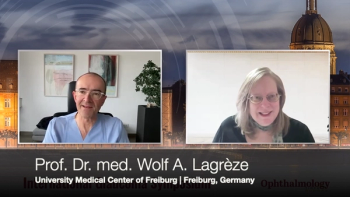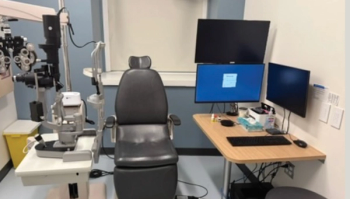
Europe burdened by glaucoma but situation can be changed
The World Glaucoma Day inspired glaucoma specialists around the world to rally local support in order to undertake an enormous task: to reduce the number of people who are unnecessarily going blind from a treatable condition.
The World Glaucoma Day inspired glaucoma specialists around the world to rally local support in order to undertake an enormous task: to reduce the number of people who are unnecessarily going blind from a treatable condition. Certainly, the prevalence of glaucoma-related blindness varies from country to country, with less developed countries accounting for the greater percentage of patients blinded by glaucoma. However, the fact remains that unnecessary glaucoma-related blindness affects every country. It is a public health problem on a huge scale and action needs to be taken in order to bring about change.
World Glaucoma Day marked a significant step in the battle for change. From public awareness-raising initiatives through to political campaigns, people around the world united to reduce the burden that glaucoma afflicts upon society.
Ophthalmology Times Europe spoke with Professor Roger Hitchings, President of the European Glaucoma Society (EGS), about their activities around World Glaucoma Day, what needs to be done on a European and a global scale, and his hopes for the future.
RH: What we're trying to do is maintain a European perspective. We really must tackle this problem at the political level, by aiming to change public health policies around Europe. In order to do this, we are lobbying Members of European Parliament (MEPs), the aim being for us to make a presentation to these MEPs about the burden of glaucoma.
We hope that this presentation will coincide with the EGS quadrennial meeting, which is taking place in Berlin this June, as well as with the issuing of the latest version of the EGS glaucoma treatment guidelines. We believe that these three activities will raise a great deal of publicity and awareness.
OTE: What do you hope will be achieved from these initiatives?
RH: Firstly, glaucoma is not dramatic; because of the way in which it slowly causes visual loss and because of the overlapping fields of vision, much early visual loss passes unnoticed. It is all too frequently undiagnosed, misdiagnosed or diagnosed late everywhere - in the UK, in Europe, everywhere.
So, one of our biggest problems is getting people to recognize the condition and to seek a diagnosis. The tragedy is that it is treatable. The second tragedy is that half of sufferers at any one time are undiagnosed, and a subsidiary tragedy is that an awful lot of people receive treatment because they've been told they have glaucoma when they really don't have it at all. They simply have mildly elevated intraocular pressure. To tell someone they have glaucoma causes fear, stress, and anxiety, so an accurate diagnosis is essential.
What we are trying to do is to heighten awareness of the condition, of the way it affects patients, of the cost of late diagnosis and also of the ways in which it can be identified at an earlier stage. By addressing all of these issues, we hope that the burden of late diagnosis will be reduced.
OTE: Where does the responsibility lie?
RH: I think the responsibility is in fact a public health one, and lies with people that make public health policies. That's one reason why, in the UK for example, we targeted the Houses of Parliament, and why we're targeting MEPs in Europe. It is a public health issue and policy needs to be directed to improving diagnosis at primary care level.
In the UK, most optometrists make the initial diagnosis but, despite this, because they're yet to be seen as primary care providers, half of cases remain undiagnosed. In other words, the system isn't working very well.
Elsewhere in Europe it's even worse because the onus lies on the patient to make an appointment with an ophthalmologist once they have symptoms. By the time they have glaucoma-related symptoms, it's often late in the course of the disease. At least optometrists have a chance of picking it up early.
That's the case we want to make: there needs to be a change in the system of identifying early glaucoma throughout the community.
Newsletter
Get the essential updates shaping the future of pharma manufacturing and compliance—subscribe today to Pharmaceutical Technology and never miss a breakthrough.




























